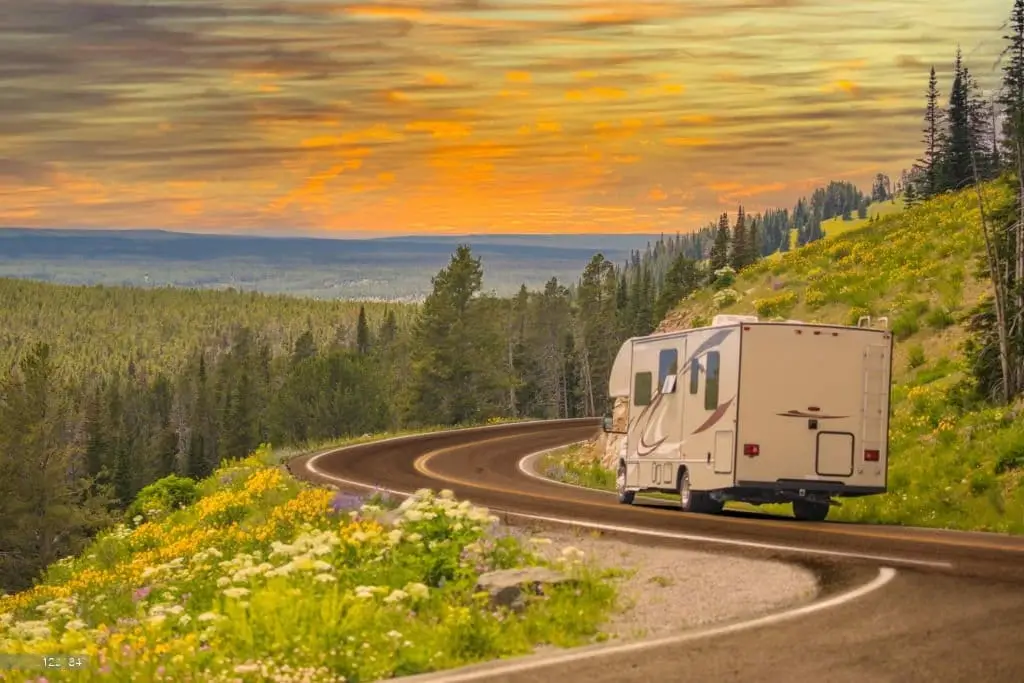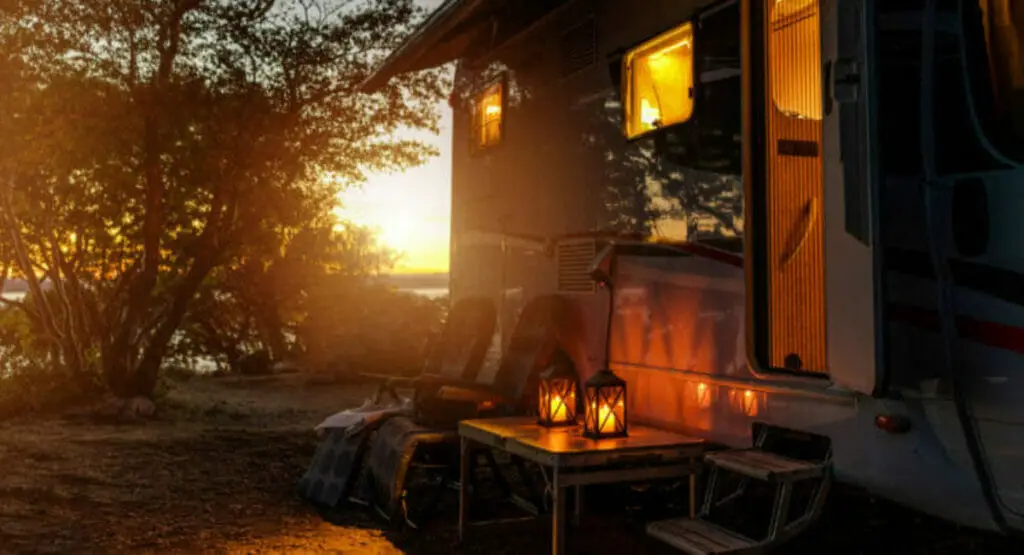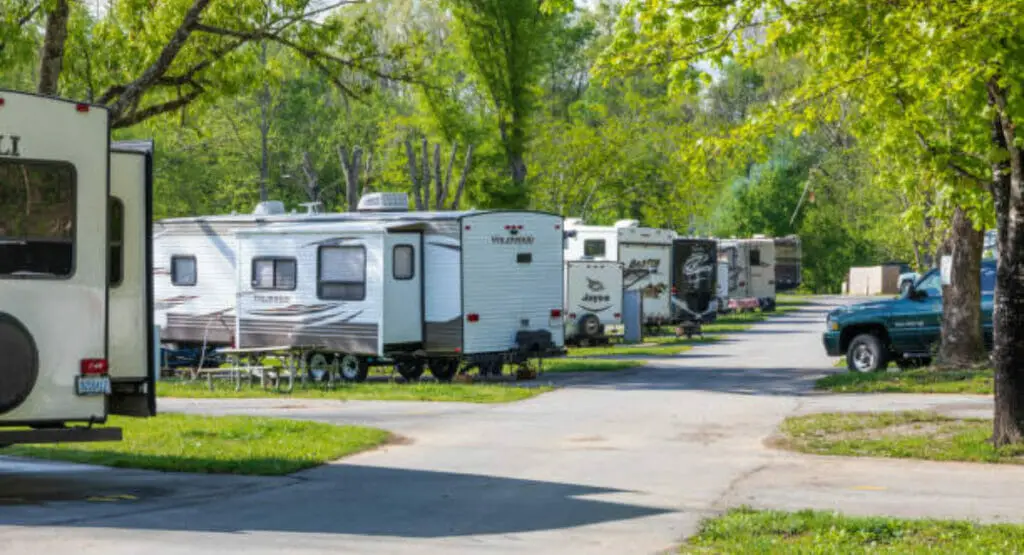RV stands for a recreational vehicle, a type of vehicle meant for travel, camping, or long-term lodging. RVs, or recreational vehicles, are self-contained vehicles that come in various sizes and types, such as motorhomes, travel trailers, fifth-wheel trailers, and truck camps. They have basic facilities such as a kitchen, sleeping area, bathroom, and living space, as well as optional luxuries such as air conditioning, heating, a TV, and a generator. RVs are popular among those who like traveling, camping, or living on the road full-time because they provide a handy, comfortable, and flexible way to get away from the daily grind and discover new areas.
1. What Does Rv Stand For
RV is an abbreviation for “recreational vehicle.” An RV is a type of vehicle with living accommodations that can be used for travel, camping, or long-term lodging. RVs are built to be self-sufficient and to provide a home-like feel when traveling. They usually have basic conveniences such as a kitchen, sleeping area, bathroom, and living area. Some RVs have a television, a generator, air conditioning, and heating. RVs are popular with folks who like to travel, camp, or live on the road full-time. They offer a handy and comfortable way to discover new locations and get away from the daily grind. RVs can be used for work, such as roadshows or film shoots, though they are typically used for leisure and relaxation.
2. Purpose of RV
An RV is intended for travel, camping, or long-term residence. It offers a cozy setting while traveling and makes it easier for people to get around and discover new places. RVs are often equipped with basic facilities such as a kitchen, sleeping area, bathroom, and living space. Some RVs also include heating, cooling, a television, and an energy-generating generator. RVs have everything you need to live comfortably on the road.
RVs are a practical and cozy way to travel to new places, escape the daily grind, and experience new things. They’re especially popular with folks who want to travel, camp, or live on the road full-time. They offer a degree of freedom and adaptability that conventional modes of transportation cannot match.
3. Types of RV
RVs exist in a range of sizes and styles to fit different needs and tastes, including motorhomes, travel trailers, fifth-wheel trailers, and truck campers. The best type to choose depends on a number of variables, including your budget, lifestyle, and intended use. Each type has unique characteristics, benefits, and drawbacks.
Each form of RV is described briefly below:
a. Motorhomes:
Motorhomes are self-propelled RVs with a living room incorporated into the vehicle’s body. They are classified as Class A, Class B, and Class C, with varying sizes, features, and prices. Motorhomes are extremely mobile and are perfect for long-distance travel and lengthy stays.
b. Travel trailers:
Towable RVs and travel trailers are connected to a truck or SUV for mobility. They are available in a range of sizes, from little and lightweight to enormous and elegant. Because they provide a great balance of cost and comfort, travel trailers are a popular option among RV enthusiasts.
c. Fifth-wheel trailers:
Fifth-wheel trailers are towable RVs with a hitch in the truck bed for transportation. They are frequently used for full-time housing or extended stays because they are more spacious and more significant than travel trailers. Fifth-wheel trailers are ideal for families or couples looking for extra space and conveniences because they provide a high level of comfort and elegance.
d. Truck campers:
Truck campers are small, compact RVs that may be installed on the back of a pickup truck. They are light and easy to operate, and they provide a more adventurous off-road experience. For those who want to travel to remote or challenging locations, truck campers are a popular choice.
Each type of RV has its own unique features and benefits, and the best one depends on personal preferences. Based on factors like budget, lifestyle, intended use, and personal preferences, an RV should be chosen. The best RV for you will depend on your personal preferences and needs since each type of RV has its own distinctive features and advantages. Examining factors like spending power, way of life, and personal preferences can be challenging when choosing an RV.
4. Features of RV
RVs are self-contained vehicles with standard features like a living area, kitchen, sleeping area, and bathroom. These amenities make it possible for travelers to travel in comfort and feel at home while doing so. Some RVs include air conditioning, heating, television, and generators that can produce electricity in addition to these basic comforts. Depending on the type and class of RV, there may be differences in the level of luxury and features offered. Higher-end RVs often come with luxuries like top-of-the-line appliances, plush furnishings, and expensive entertainment systems.
RVs are generally designed to provide comfort and convenience while enabling quick and comfortable travel.
5. Popularity of RV
RVs have grown in popularity in recent years as people seek out fresh and unusual travel experiences. They are a practical and cost-effective way to travel and live comfortably on the road. Many different types of people, including seniors, families, and young people seeking a more independent and adventurous lifestyle, are drawn to RVs. RVs are expected to rise in popularity as people seek new ways to travel and experience the world.
6. Uses of RV
RVs are mostly utilized for pleasure and recreation, such as traveling, camping, and road trips. However, they may be used for professional reasons, such as giving personnel working at distant job sites or on business trips temporary housing. Some people use RVs as mobile workplaces or living areas while working from home. RVs can also be used as rental properties or as vacation homes to generate income. Although recreational vehicles (RVs) are primarily used for leisure, they are also quite adaptable and can be used for a variety of other purposes.
7. Benefits of RV
RVs offer a useful, cozy, and flexible alternative for escaping the daily grind and traveling to new places.
a. Convenience
Because RVs are self-contained and provide everything you need to live comfortably, you won’t have to worry about finding housing or eating out.
b. Comfort
RVs offer a pleasant living area with all the comforts of home.
c. Flexibility
RVs, give you the freedom to travel at your own pace and explore new places at your leisure.
d. Cost-effectiveness:
Because housing, meals, and other expenses may be shared, RVs can be a cost-effective way to travel, especially if you’re traveling with a group.
d. Adventure
RVs offer the potential for adventure and the possibility to try new things and see new places.
Conclusion
In conclusion, an RV is a sort of vehicle that provides a pleasant and easy method to travel and enjoy the great outdoors. RVs come in a number of styles and designs and provide a variety of amenities to satisfy the needs of various travelers and campers. An RV may be a terrific investment for individuals who appreciate outdoor adventure and travel, whether you’re searching for a luxury motorhome or a modest camping trailer. Before selecting the appropriate RV for you, like with any big purchase, examine your needs, budget, and lifestyle.



